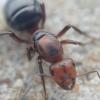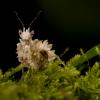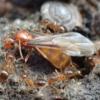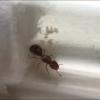So, I've worked up quite the reputation among my teachers for my ant obsession. My Social Studies/Homeroom teacher in particular. He's one of those teachers who comes up with nicknames for his students (for example, a girl in my class dropped a stapler once, and ever since, he's called her "The Rebel"). I have had a few nicknames he's given me in the past. One is "The Tapper", since I drum on the desks a lot. My most recent one is Emm-Ant (since my name is Emmett).
A couple days ago he asked me how my colonies were doing, and I answered that I had just placed them in hibernation a few days prior. He asked if they would survive the hibernation, and I told him that yes, ants hibernate every year in the wild. He then asked how I knew that they would survive, since I've never hibernated ants before, this being my first year and all. That got me thinking, am I hibernating my colonies correctly? I mean, I've never done this before.
So before this, I thought that for hibernation, you just place your ants in a cold place, they fall into a state of sleep where no food is required, and you forget about them until spring. However, when I check on my ants, they are still awake. Slow and lethargic, but awake. Doing more research, some people say the ants need to be fed during this period, some say no. Some say that there is a specific way to hibernate them so that they fall completely asleep. If possible, this is the type of hibernation I'm going for, so that I can focus completely on school.
I am currently hibernating my ants in a refrigerator drawer that's kept around 6.6° celsius (44° fahrenheit). All my colonies are still in test tubes, so I just bundled them together with rubber bands and placed them in. If someone could tell me how to get them into complete diapause, I would appreciate that.
Please Help!

























